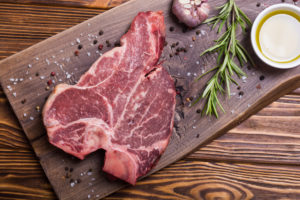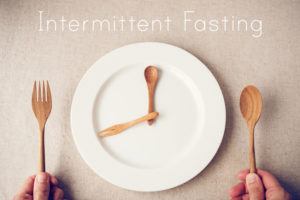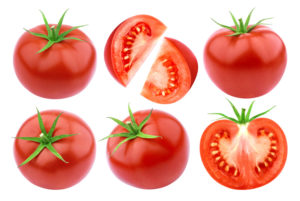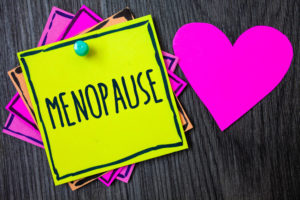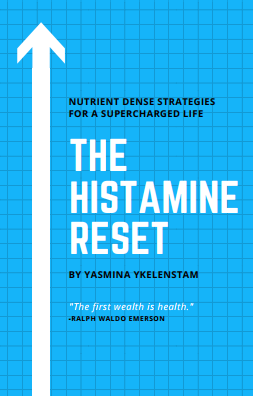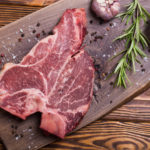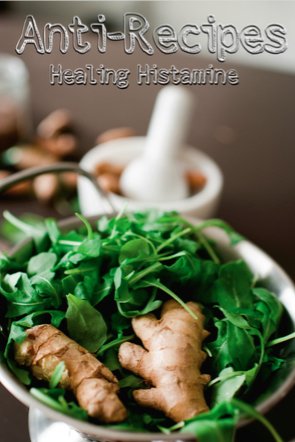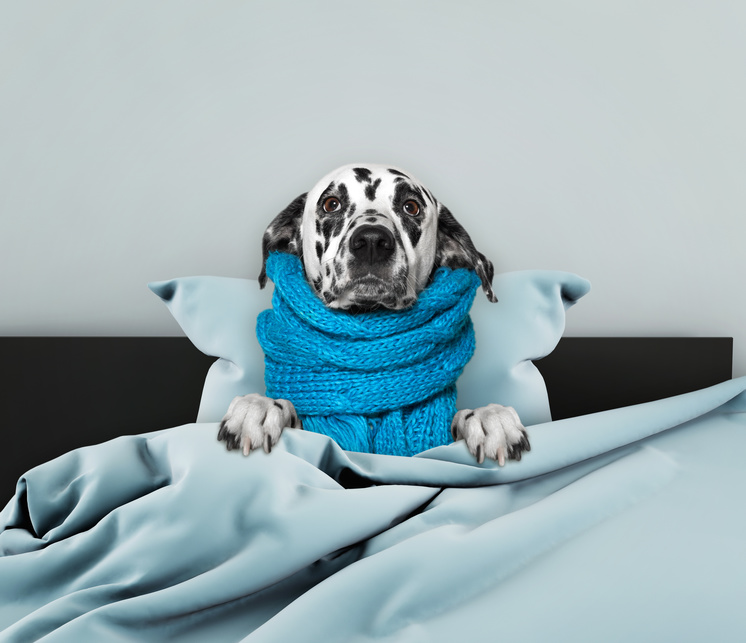
There are certain symptoms of histamine intolerance that come up time and time again. People want to know, “Is this related to histamine?” And “Why does histamine do that?” Well, here are some of the top symptoms of histamine intolerance, some potential reasons behind the symptoms, and a few basic fixes.
BRAIN FOG
According to a paper by Dr. Theoharides at Tufts University, brain fog is a constellation of symptoms that include reduced cognition, inability to concentrate and multitask, as well as a loss of short and long term memory. Dr. Theoharides believes that brain fog may be due to inflammatory molecules (called cytokines) and histamine released from mast cells, causing brain inflammation.
Fixes:
- Luteolin: A powerful mast cell inhibitor flavonoid which prevents histamine release.
- Quercetin: Another flavonoid that inhibits mast cells and prevents histamine release.
- Quercetin and luteolin rich foods include broccoli, parsley, artichoke, butternut squash, and all the foods in my Histamine Reset program.
- Brain exercise: Scientists suggest learning a new language, take a different route to work, brush your teeth with the non-dominant hand, anything to take the brain out of autopilot.
DIZZINESS
According to histamine expert, Janice Joneja, histamine can cause swelling of the small semicircular canals in the ear, which may also affect nearby nerves and impact the brain, causing dizziness.
Fixes:
- Follow a low histamine diet.
- Identify the triggers (food, environmental, emotional, and cut them out).
BLOATING
Histamine is also released during the digestive process, and can contribute to inflammation and bloating. A high nutrient, histamine-balanced quercetin, luteolin and rutin diet, quercetin supplement, positivity, and meditation all came together joyously (with a little whittling down of the very high oxalate foods) to bring back a flat stomach.
Oxalate and FODMAPs sensitivity should also be ruled out.
Fixes:
- Holy basil (Tulsi) tea to lower histamine.
- Nigella sativa to help with digestion and lower histamine.
- Intermittent Fasting — to give your digestive histamine a break, and because fasting lowers histamine.
ITCHING
Histamine is released from mast cells when triggered by allergens or histamine rich foods and behaviours, which then causes itching. But researchers have found it’s more complicated than that: pain generally will prevent itchiness, which has in recent years pointed to more than just histamine as the culprit.
Fixes:
According to a study on itching, it can be relieved by mild cold. Perhaps a cool shower or lukewarm bath (I’ve always found a cool bath or dip in water totally relieves all my symptoms instantly. The study says to definitely stay away from heat of any kind.
Menthol has been shown to help itchiness, but essential oils can be a histamine trigger. Perhaps fresh peppermint leaves?
DEPRESSION & ANXIETY
It’s been observed in a number of studies that people treated with medications that trigger inflammation (interferon for example), also develop depression during treatment. And that patients with arthritis treated with anti-inflammatories experience a remission in depression. Scientists are now planning to start medical trials on antidepressant non-responders, to try and alleviate their depression.
It’s hardly news to us those of us with histamine intolerance and mast cell activation that inflammation can cause symptoms of anxiety. Now though, the research has finally caught up, with scientists identifying altered pro and anti-inflammatory profiles in patients with Generalised Anxiety Disorder (GAD). One of the inflammatory agents is monitored in the study can also be released by mast cells (which can also trigger histamine).
This study provides the first evidence that Generalized Anxiety Disorder (GAD) is associated with an imbalance between interferon (IFN-y), interleukin (IL-10), and tumor necrosis factor (TNF-a), which is released by mast cells. The authors found that patients with GAD had high levels of pro-inflammatory IFN-y and TNF-a, but low levels of the anti-inflammatory IL-10, compared to healthy control subjects.
Fixes:
A UK study recently came to the conclusion that for a possible third of depressed patients, an anti-inflammatory might be a more effective treatment. In my experience of a lifetime of horrific anxiety that culminated in agoraphobia (the fear of being outdoors), an anti-inflammatory diet helps. In particular I’ve found what really works are fruits like cherries (read how they’re as good as aspirin here) as well as inflammation fighting cucumber, and even butternut squash which actually has documented anti-depressant effects.
- Identify the triggers (food, environmental, emotional, and cut them out).
- Meditation and stress relief techniques have also been invaluable.
Need help navigating the Histamine Jungle? I teach you how to do all this and more in the 28 day reset.
SLEEPINESS/INSOMNIA
Researchers have found that mast cells play a major role in running our internal clock. There are histamine receptors in the brain that allow histamine to act as a neurotransmitter and interact with serotonin (precursor to melatonin) and GABA. The histaminergic system is located in the hypothalamus and exerts its effects on all the major regions of the central nervous system. Using antihistamines working on the H1 receptor promotes sleep, while medications that max out the histamine signal at the H1 receptor keeps us awake (or jacked up as I used to call it). Similarly manipulating the H3 receptor can either promote sleep or wakefulness.
Histamine neurons stop keeping us awake and vigilant once we drift off into both non-REM and REM sleep (makes sense right?). Lack of the brain chemical GABA, which acts as a kind of dampener on central nervous system hyperexcitability, can trigger symptoms of mania and sleeplessness.
Mice lacking GABA slept just sixty-five percent the normal amount of non-REM sleep. Researchers noted that mice losing that much sleep would sleep longer the next time they were allowed to, but these mice kept up a hyperactive state for the next sixteen hours. They appeared to need no recovery sleep at all.
Fixes:
- Go amber: Switch off your regular blue/white lights at night. Switch to amber bulbs and install F.lux on your computer. Because of staying in the chronic stress/inflammatory state, your HPA axis and circadian rhythm may be more sensitive to light stimulation. It’s an easy fix.
- King – Prince – Pauper. Ever heard of this concept? Eat like a king at breakfast, a prince at lunch, and a pauper/beggar at dinner. Don’t go to bed super hungry, but try to avoid eating after 7 pm. This will also help with the acid reflux tendency.
- Embrace natural antihistamines: Whether you’re currently taking pharmaceutical antihistamines or not, adding some natural antihistamines and anti-inflammatories could help. I often make myself an emergency antihistamine juice for dinner.
GERD/ACID REFLUX
Histamine release by cells in the mucous lining of the stomach promotes the production of stomach acid by binding with histamine H2 receptors. That’s why H2 antagonists, like Proton Pump Inhibitors (PPIs) work to block stomach acid production. It’s possible that the increased histamine is causing increased stomach acid, but the inflammation and oxidative stress may also be making tissue inside the more susceptible to injury. Research has shown that increasing your antioxidant intake helps.
Fixes:
- Higher antioxidant intake: whole foods like blueberries, pomegranate, kale, red cabbage, sweet potatoes, etc.
- Slippery Elm Powder: Try 1 Tbsp in water
- Marshmallow root tea: Enjoy after meals
- Curcumin: Try 2 grams per day of the extract or enjoy golden milk tea (with turmeric) when symptoms arise
*Curcumin may affect diamine oxidase (DAO) the histamine degrading enzyme
- Nigella sativa to lower histamine and improve digestion. You can read more about Nigella here
———-REFERENCES———
http://journal.frontiersin.org/article/10.3389/fnins.2015.00225/full
“Depression, a disease of the mind? Actually our immune system could be the culprit.” Spectator Health, 19 May 2017, health.spectator.co.uk/depression-a-disease-of-the-mind-actually-our-immune-system-could-be-the-culprit/. Accessed 14 Sept. 2017.
“GABA and Histamine Work Together to Control Wakefulness « Hypersomnia Foundation.” Hypersomnia Foundation. N.p., n.d. Web. 04 June 2017.
Hou, R., Garner, M., Holmes, C., Osmond, C., Teeling, J., Lau, L., & Baldwin, D. S. (2017). Peripheral inflammatory cytokines and immune balance in Generalised Anxiety Disorder: case-controlled study. Brain, Behavior, and Immunity, 62, 212–218. http://doi.org/10.1016/j.bbi.2017.01.021
Shim, W.-S., & Oh, U. (2008). Histamine-induced itch and its relationship with pain. Molecular Pain, 4, 29. http://doi.org/10.1186/1744-8069-4-29
Theoharides, T. C. (2009). Luteolin as a therapeutic option for multiple sclerosis. Journal of Neuroinflammation, 6, 29. http://doi.org/10.1186/1742-2094-6-29


